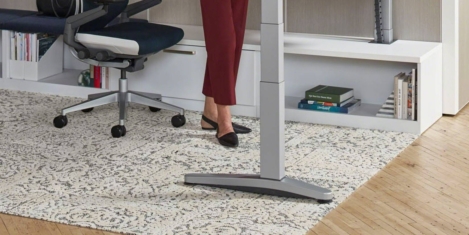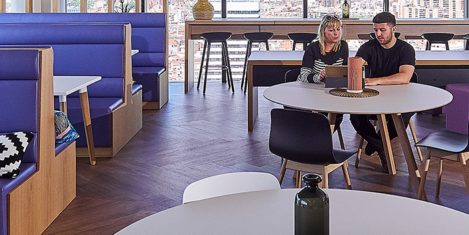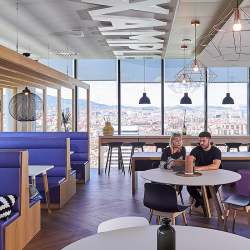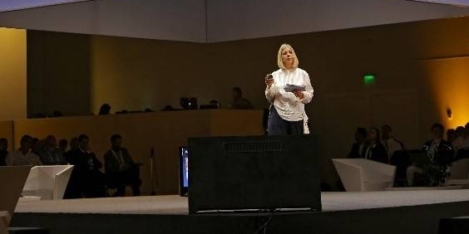July 25, 2018
New study claims to confirm the benefits of sit-stand workstations
 A new study suggests that height adjustable or sit-stand workstations may be beneficial in reducing sedentary behaviour and supporting health outside the workplace. The study’s results have been published in the International Journal of Workplace Health Management. Funded by the American Society of Interior Designers (ASID) Foundation’s Transform grant, interim study results were announced on the ASID website last year. The final study, “Stand Up to Work: Assessing the Health Impacts of Adjustable Workstations,” found that sit-stand workstations are linked to increased productivity, better mental concentration, and improved overall health in employees who used sit-stand desks over a 12-month period. Most employees reported that the sit-stand desks had a positive impact on their health outside the workplace.
A new study suggests that height adjustable or sit-stand workstations may be beneficial in reducing sedentary behaviour and supporting health outside the workplace. The study’s results have been published in the International Journal of Workplace Health Management. Funded by the American Society of Interior Designers (ASID) Foundation’s Transform grant, interim study results were announced on the ASID website last year. The final study, “Stand Up to Work: Assessing the Health Impacts of Adjustable Workstations,” found that sit-stand workstations are linked to increased productivity, better mental concentration, and improved overall health in employees who used sit-stand desks over a 12-month period. Most employees reported that the sit-stand desks had a positive impact on their health outside the workplace.















 Employers with over 250 employees are more likely to have a significant absence issue among staff says new research from Group Risk Development (GRiD). According to HR decision makers companies with over 250 employees have the highest absence rates – averaging 7.5 days per year yet micro businesses with between 1-9 staff only see their staff take an average of 2.8 days absence per year. Five per cent of HR decision makers also admitted to not recording or monitoring absence at all, although this is more prevalent amongst SMEs (6 percent) than those with over 250 employees (1 percent).
Employers with over 250 employees are more likely to have a significant absence issue among staff says new research from Group Risk Development (GRiD). According to HR decision makers companies with over 250 employees have the highest absence rates – averaging 7.5 days per year yet micro businesses with between 1-9 staff only see their staff take an average of 2.8 days absence per year. Five per cent of HR decision makers also admitted to not recording or monitoring absence at all, although this is more prevalent amongst SMEs (6 percent) than those with over 250 employees (1 percent). 




 Almost 60 percent of UK employees are unable to identify key symptoms of the most common mental health conditions resulting in treatment delays for millions of workers. A new study from Bupa examined employees’ understanding of key psychological and behavioural symptoms of six of the most prevalent conditions in the UK, as well as identifying widely-held misconceptions. The research reveals that inaccurate assumptions have caused almost seven million people to delay seeking support for a mental health problem. Early diagnosis and treatment of conditions can improve recovery rates which is why medical experts at Bupa want to raise awareness of the accurate symptoms.
Almost 60 percent of UK employees are unable to identify key symptoms of the most common mental health conditions resulting in treatment delays for millions of workers. A new study from Bupa examined employees’ understanding of key psychological and behavioural symptoms of six of the most prevalent conditions in the UK, as well as identifying widely-held misconceptions. The research reveals that inaccurate assumptions have caused almost seven million people to delay seeking support for a mental health problem. Early diagnosis and treatment of conditions can improve recovery rates which is why medical experts at Bupa want to raise awareness of the accurate symptoms. 














July 23, 2018
New report on the future of work argues we are at an inflection point on the journey
by Mark Eltringham • Comment, Technology, Workplace design
(more…)